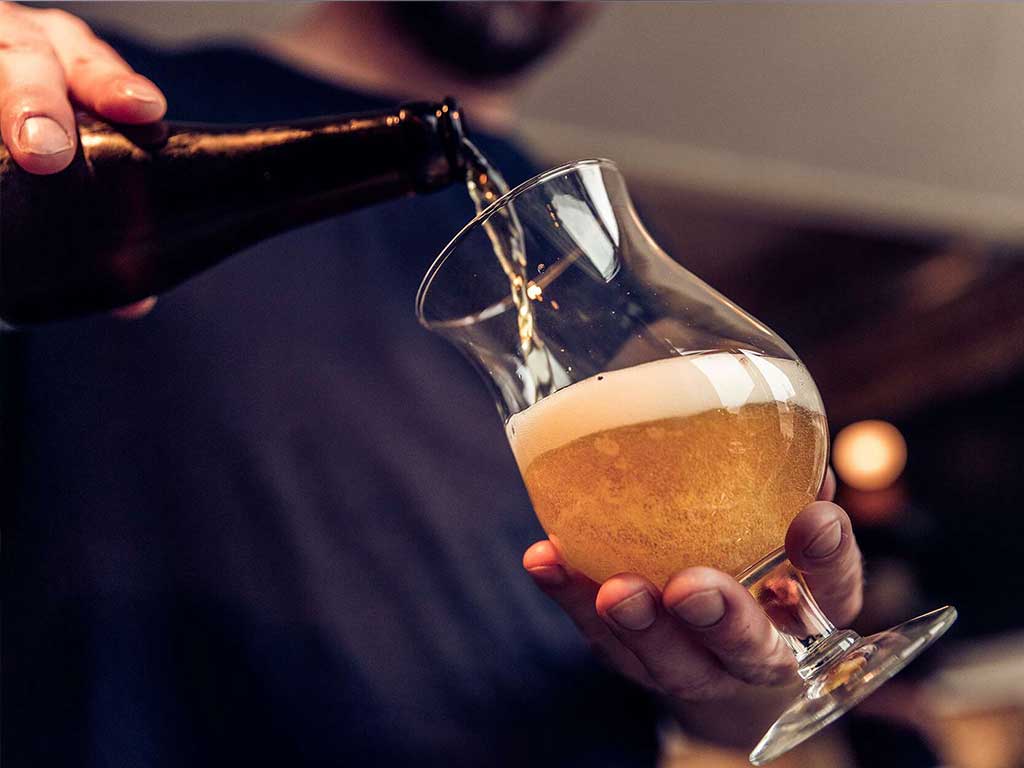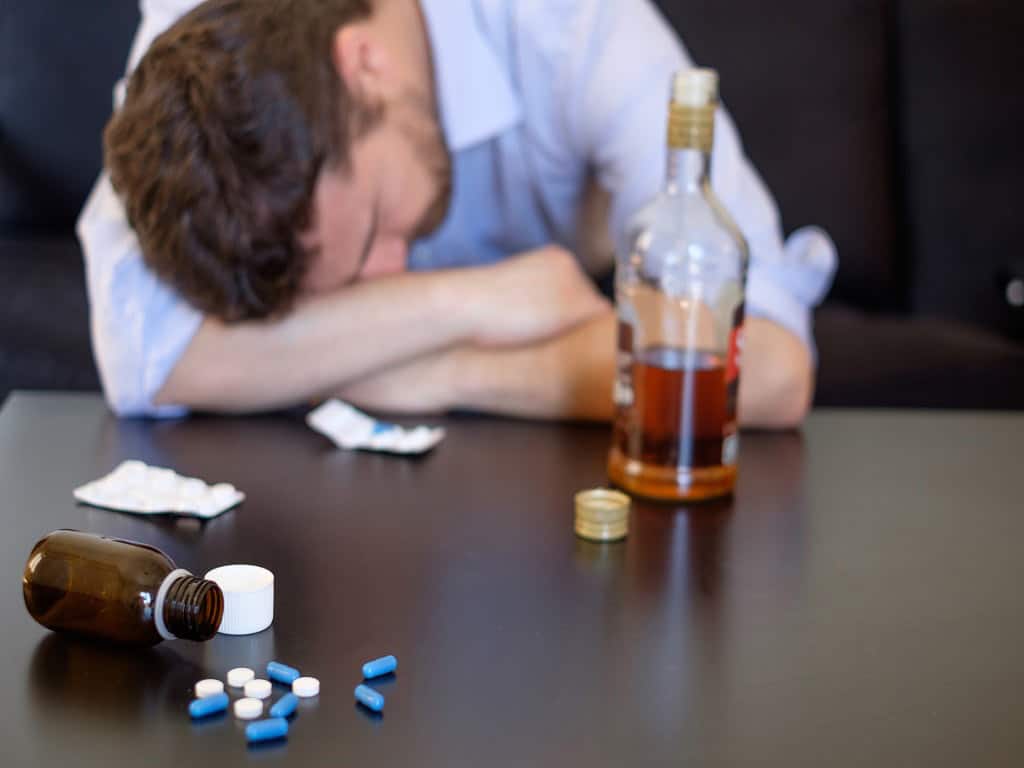How Long Does It Take Alcohol to Leave Your System?
09 April, 2024

The human body can process around one alcoholic drink per hour. Subsequently, it typically takes about one hour for the body to metabolise and eliminate one standard drink. However, several factors can affect how long does it take alcohol to leave your system. For instance, alcohol metabolites stay in the urine for one to three days. On the other hand, the substance can be found in hair follicles for up to 90 days because hair grows relatively slowly.
A standard drink translates to 5 ounces of wine, 12 ounces of regular beer, or 1.5 ounces of liquor. If someone consumes more amounts of alcohol than the body can process in an hour, the excess alcohol will accumulate in their system. Hence, drinking responsibly is essential. Otherwise, the effects of alcohol can linger for a longer period. The following sections will present how body size and weight, metabolism, and food consumption affect the window.
How Long Does It Take Alcohol to Leave Your System Is Influenced by the Body Size and Weight
People asking how long does it take alcohol to leave your system must know that body size and weight affect the period. Those with a smaller body size and lower body weight tend to have a higher Blood Alcohol Concentration (BAC) and a longer elimination rate.
As for people with a higher percentage of body fat, they may also retain alcohol longer since alcohol is not easily absorbed into fatty tissue. Also, they may experience a slower metabolism of alcohol. Consequently, alcohol remains in the bloodstream longer in individuals with more body fat. Even if they cannot feel the effects of alcohol immediately, it can still be present in the system for an extended period.
Weight loss can also influence the time for alcohol to leave the system. If someone loses weight, they may find that their tolerance for alcohol has decreased and that it takes less alcohol to feel its effects. Hence, those with larger body masses may eliminate alcohol from their system more quickly.
Gender and Age
Gender:
- Women tend to have a slower metabolism than men, resulting in alcohol remaining in their system for a lengthier period. This is due to a higher body fat percentage in women.
- Women also have lower levels of alcohol dehydrogenase, an enzyme that breaks down alcohol in the body. Thus, this leads to slower alcohol elimination rates.
Age:
- As individuals age, their metabolism slows down, causing a longer duration for alcohol to leave the body.
- Older individuals may also have less muscle mass, which impacts their ability to break down alcohol. With a higher percentage of body fat, alcohol elimination can be slower.

How Long Does It Take Alcohol to Leave Your System Is Affected by Metabolism
Metabolism plays a crucial role in determining how long does it take alcohol to leave your system. Upon consumption, the body absorbs the substance into the bloodstream. Then, the liver metabolises it. The speed at which this occurs can vary significantly from person to person, primarily due to differences in individual metabolism.
For some people, the metabolism of alcohol is relatively swift. It allows their bodies to process and eliminate it more quickly. These individuals may experience the effects of alcohol for a shorter duration. Moreover, the elimination of alcohol may be faster for them. Conversely, those with a slower metabolism may find that alcohol takes longer to leave their system. This results in a lengthier period of intoxication.
Nevertheless, the type of testing method can still affect the detection window. For instance, urine tests can identify alcohol metabolites for one to three days. Meanwhile, breath tests can find the substance for up to 24 hours after consumption. Blood tests can detect alcohol for up to four weeks. Alcohol can appear in saliva tests for up to 12 hours. Hair tests can detect alcohol use for up to 90 days.
Understanding How the Body Processes Alcohol
Processing alcohol in the body involves several complex steps. When a person drinks alcohol, the body rapidly absorbs it into the bloodstream through the stomach and the small intestine. From there, it travels to the liver. This organ is mainly responsible for metabolising alcohol. Enzymes in the liver break down alcohol into acetaldehyde, a highly toxic compound.
The body breaks down acetaldehyde further into acetic acid, which is harmless. However, if alcohol intake exceeds the capacity of the liver to metabolise it, acetaldehyde can build up and cause various negative effects on the body. Over time, excessive alcohol consumption can cause liver disease.

How Long Does It Take Alcohol to Leave Your System Is Influenced by Food Consumption
Individuals asking how long does it take alcohol to leave your system should understand how food consumption influences the detectability period of alcohol. For instance, binge drinking alcohol on an empty stomach can lead to a quicker absorption of alcohol into the bloodstream. Subsequently, this results in higher peak blood alcohol content levels. It also takes longer for the body to eliminate it.
On the other hand, eating before or during the consumption of alcohol can significantly slow down the process. Food in the stomach helps to slow the absorption of alcohol, as it acts as a physical barrier. Thus, this prevents alcohol from quickly entering the bloodstream.
Furthermore, the type of food people eat can impact the rate at which alcohol leaves the system. Foods high in fat and protein can further delay the absorption of alcohol into the bloodstream. The reason is that these foods take longer to digest, allowing the liver to process alcohol at a slower pace. Meanwhile, drinking coffee, energy drinks, or other caffeinated beverages does not speed up the elimination of alcohol from the body.
Medication and Medical Conditions
Certain medications can interfere with the ability of the body to metabolise alcohol, prolonging its presence in the system. For instance, antibiotics, antifungal medications, and antidepressants can slow down alcohol metabolism. Consequently, this leads to a slower elimination of alcohol from the body.
Some medical conditions can also influence the elimination rate of alcohol. Liver diseases, such as cirrhosis or hepatitis, impair the ability of the organ to metabolise alcohol effectively. Hence, this results in a prolonged elimination process. Moreover, individuals with a slower metabolism, such as those with hypothyroidism, may experience delayed alcohol clearance.
Conclusion
Various factors impact how long does it take alcohol to leave your system. Body size and weight play a significant role, as individuals with a larger mass tend to have more body water content. This helps dilute alcohol and eliminate it more quickly. Additionally, metabolism is crucial. Some people have a faster metabolic rate, allowing them to process alcohol more efficiently. On the other hand, those with a slower metabolism may take longer to eliminate alcohol from their system.
Moreover, food consumption can influence the rate at which alcohol is eliminated. The reason is that consuming food before or during drinking can slow down the absorption of alcohol into the bloodstream, leading to a longer elimination time. Understanding these factors can help individuals make informed decisions about alcohol consumption and ensure their safety and well-being. Nevertheless, the type of alcohol testing can also affect the detection window, with hair tests being the longest.






























